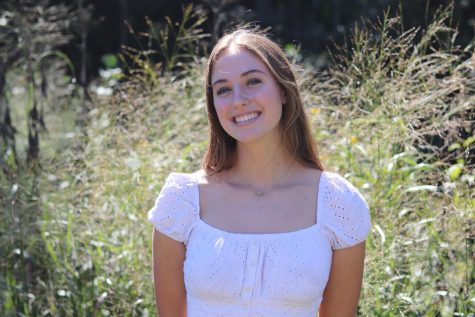Debate over COVID-19 vaccine enters the WHS community
Credit: “Coronavirus Vaccine concept” by Flickr user wuestenigel
Two COVID-19 vaccines were approved by the FDA last December: the Pfizer vaccine on Dec. 11 and the Moderna vaccine on Dec. 18. The vaccine has been distributed to healthcare workers and residents of long term care facilities in Wayland. “I would definitely consider [taking it] if it were to benefit my community,” sophomore Ashley Rice said.
January 22, 2021
As one of the most newsworthy scientific breakthroughs of 2020, the news of a successful COVID-19 vaccine excited many. While it was news well-received by most, it is still a point of contention nationwide. Now that selected members in our community are receiving the vaccine, many WHS students have voiced their opinions on the risks and benefits of the vaccine.
Frontline healthcare workers and senior citizens in Wayland are beginning to get the vaccine. This is a big step forward towards making the Wayland community safe from the virus.
“My mom took the Moderna [vaccine] two weeks ago and will get the second booster Moderna shot in two weeks, so [the vaccines will be administered] 28 days apart,” sophomore Maya Lee said.
With COVID-19 vaccinations becoming more accessible and abundant, getting the vaccine has become a more realistic option. Students are deciding whether or not they want the vaccine themselves.
“I would definitely consider it if it were to benefit my community,” sophomore Ashley Rice said.
Potential side effects of the vaccine are the main reason why some don’t plan on getting the vaccine. Bell’s palsy (partial facial paralysis), headaches, muscle pain and fever have all been reported by people who have been vaccinated. Not to mention, the long term effects are still unknown.
“[My mom’s] arm that she got the vaccine in was sore for around a day, but she said it doesn’t burn going in like a lot of other shots do,” Lee said.
Another point of debate about the vaccine is the way it’s being distributed. The Center for Disease Control and Prevention recommends that healthcare personnel and residents of long-term care facilities should get the vaccine first.
“I feel like some people should get [the vaccine] before others,” sophomore Lila Powers said. “I don’t think the people who are in jail should be getting [the vaccine] before elderly people.”
Under normal circumstances, a vaccine could take 10-15 years to be developed, but the COVID-19 vaccine took under a year to produce. While this is unconventional, many students trust the experts.
“Whenever they make it is fine,” senior Matthew Morrison said. “It did take a year which is kind of a while.”
For many reasons, a large portion of the American population is hesitant or unwilling to take the vaccine. This causes concern for some WHS students who believe the end of the pandemic could be delayed.
“It’s a little concerning because if a lot of people don’t take it—it can keep spreading,” Powers said. “If you’re immune to it after you got it then it’s not a big deal because everyone else will have the vaccine and it won’t matter.”
The new vaccine has created a lot of hope that the end of the pandemic is coming sometime soon, but the future is still uncertain.
“I think even with the vaccine it will be a long slow process to return to normal,” Rice said. “I assume things will begin to loosen up, but we will not go directly back to the normal we used to know.”





![Last Wednesday, the Wayland School Committee gathered to discuss a number of topics regarding the health curriculum and Innovation Career Pathway course. Another large topic of conversation was the ways to potentially mitigate distracting cell phone usage. "These [phones] are going to distract your learning and social relationships," Superintendent David Fleishman said. "That's concrete right there."](https://waylandstudentpress.com/wp-content/uploads/2025/06/Screenshot-2025-06-04-at-9.49.31 PM-1200x886.png)



























![Troy Hoyt finishes the Boston Marathon, running for the Hoyt Foundation. T. Hoyt is the son of Hoyt Foundation CEO Russ Hoyt.
“[Running a marathon] might seem like a big thing, when it’s presented to you at first, but if you break it up and just keep telling yourself, “Yes, you can,” you can start chipping away at it. And before you know it, you’ll be running the whole 26 miles, and you won’t even think twice about it.” T. Hoyt said.](https://waylandstudentpress.com/wp-content/uploads/2025/04/C36E8761-1CBB-452E-9DF2-543EF7B1095E_1_105_c.jpeg)











































![Two COVID-19 vaccines were approved by the FDA last December: the Pfizer vaccine on Dec. 11 and the Moderna vaccine on Dec. 18. The vaccine has been distributed to healthcare workers and residents of long term care facilities in Wayland.
"I would definitely consider [taking it] if it were to benefit my community," sophomore Ashley Rice said.](https://waylandstudentpress.com/wp-content/uploads/2021/01/50288626402_20ebc0a59a_b-900x600.jpeg)


Pat Conaway • Jan 25, 2021 at 4:58 PM
What an informative and well written article. I’m Genevieve’s Grandfather, so consider me a bit partial. But this article reflects the formidable gifts of her teacher and the author